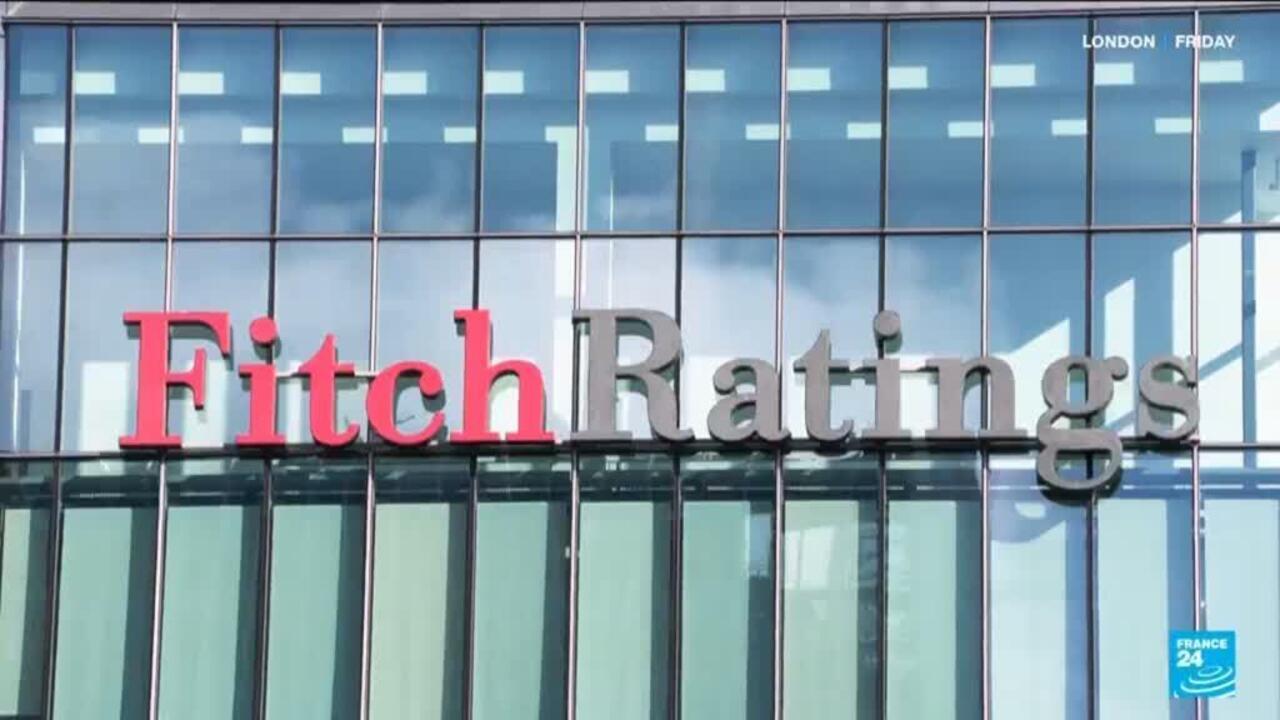The Fitch agency downgraded France's credit rating on Friday, as President Emmanuel Macron struggles with political instability and disagreements on how to put the country's strained public finances in order.
The US ratings agency, one of the top global institutions gauging the financial solidity of sovereign borrowers, downgraded France on its ability to pay back debts, from "AA-" to "A+".It also said France's debt mountain would keep rising until 2027 unless urgent action was taken.
The move comes just four days after François Bayrou resigned as prime minister after losing a parliamentary confidence vote over an attempt to get an austerity budget adopted. He had sought major spending cuts in the budget in a bid to cut the French deficit and debt.
Reacting to the announcement, Bayrou said on X that France was "a country whose 'elites' lead it to reject the truth (and) is condemned to pay the price".
The downgrade will further complicate the task of new Prime Minister Sébastien Lecornu, probably heading a minority government, of drawing up a budget for next year.
Lecornu became Macron's fifth prime minister in less than two years. The task of passing a slimmed-down budget through parliament is near-impossible, and is what led to the defenestration of France's last two prime ministers.
Read moreCan Macron’s quiet power broker Sébastien Lecornu navigate France’s fractured politics as PM?
"The government's defeat in a confidence vote illustrates the increased fragmentation and polarisation of domestic politics," Fitch said in a statement.
"This instability weakens the political system's capacity to deliver substantial fiscal consolidation," it added, saying it was unlikely the fiscal deficit would be cut to three percent of GDP by 2029, as the outgoing government had wanted.
Outgoing Economy Minister Eric Lombard acknowledged the agency's move, but insisted on the "solidity" of the French economy.
A rating downgrade typically raises the risk premium investors demand of a government to buy sovereign bonds – although some financial experts had suggested the debt market had already priced in an expected downgrade for France.
On Tuesday, the return on French 10-year government bonds, known as the yield, rose to 3.47 percent, close to that of Italy, one of the eurozone's worst performers.
Unclear horizon
Rising yields would translate into higher costs for servicing France's debt, which Bayrou warned was already at an "unbearable" level.
Since Macron's allies in parliament have no overall majority, they will likely have to make compromises that could undermine any drive to slash spending and raise taxes – with Lecornu's job potentially also on the line.
To win sufficient parliamentary support, Lecornu is expected to make concessions to the Socialists, including higher taxes on the wealthy and softening Macron's hard-won 2023 retirement reform. But he risks alienating lawmakers in Macron's own party and the conservative Republicans if he goes too far.
Read moreIncoming French PM Sébastien Lecornu vows 'break' with past to exit crisis
France's budget deficit represented 5.8 percent of gross domestic product (GDP) last year, and its debt 113 percent of GDP.
This compares with eurozone ceilings of three percent for the deficit, and 60 percent for debt.
"Fitch projects debt to increase to 121 percent of GDP in 2027 from 113.2 percent in 2024, without a clear horizon for debt stabilisation in subsequent years," the agency said.
"France's rising public indebtedness constrains the capacity to respond to new shocks without further deterioration of public finances."
France is still cautiously targeting economic growth this year. The INSEE national statistics bureau said Thursday that GDP was projected to grow by 0.8 percent for 2025, 0.1 points more than the previous government's estimate.
Rival agency S&P Global is due to update its own sovereign rating for France in November.
(FRANCE 24 with AFP, Reuters)










 English (US) ·
English (US) ·